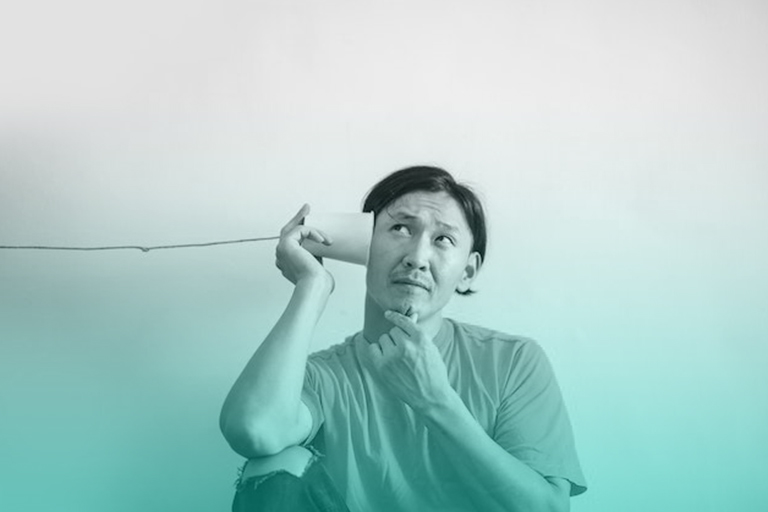The Importance of Active Listening
Active listening is important in personal and professional settings. In personal relationships, it helps us understand the needs and concerns of our loved ones. In the workplace, it improves communication and enhances productivity.
When we actively listen to others, we show them that we value their opinions and care about their feelings. This helps to build trust and respect in our relationships.
What is Active Listening?
Active listening is a communication skill that involves fully concentrating on, understanding, responding to, and remembering what is being said. It requires us to give our full attention to the speaker, both verbally and nonverbally. This means avoiding distractions, such as checking our phones or thinking about what we are going to say next. It also involves using nonverbal cues, such as nodding and maintaining eye contact, to show the speaker that we are engaged.
Common Barriers to Active Listening
There are several common barriers to active listening that can prevent us from fully engaging with the speaker. These barriers include:
- Anything that takes our attention away from the speaker, such as our phones or the environment around us, can be a distraction.
- Our personal beliefs and opinions can cause us to tune out or dismiss what the speaker is saying.
- Our own emotions can impact our ability to listen actively. For example, if we are feeling angry or upset, we may not be able to listen effectively.
- If we are not interested in the topic or the speaker, we may be less likely to actively listen.
Benefits of Being a Good Listener
Being a good listener has several benefits, both personally and professionally. These benefits include:
- When we actively listen to others, we build stronger and more meaningful relationships.
- Active listening helps us understand the perspectives and opinions of others, which can broaden our own understanding and knowledge.
- In the workplace, active listening can improve communication and lead to more efficient and effective teamwork.
- Active listening can help us develop greater empathy and compassion for others, which can lead to increased kindness and understanding.
Tips to Become a Better Listener
Becoming a better listener takes practice, but there are several tips that can help us improve our skills. These tips include:
Be Present in the Moment
To be an active listener, it’s important to be present in the moment. This means avoiding distractions and focusing on the speaker. It also involves being aware of our own thoughts and emotions and acknowledging them without letting them interfere with our ability to listen.
Use Nonverbal Cues Effectively
Nonverbal cues can be just as important as verbal communication when it comes to active listening. Using cues such as nodding, maintaining eye contact, and smiling can show the speaker that we are engaged and interested in what they are saying.
Ask Open-Ended Questions
Asking open-ended questions can encourage the speaker to share more information and help us better understand their perspective. These questions typically begin with “how,” “what,” or “why” and require more than a simple yes or no answer.
Avoid Interrupting and Jumping to Conclusions
Interrupting the speaker or jumping to conclusions can prevent us from fully understanding their message. It’s important to let the speaker finish their thought before responding and to avoid making assumptions about what they are saying.
How to Apply Active Listening in Different Settings – Personal and Professional
Active listening can be applied in both personal and professional settings. In personal relationships, it can help us build stronger connections and show our loved ones that we care. In the workplace, it can improve communication and lead to more effective teamwork. Some tips for applying active listening in different settings include:
Personal Relationships
- Set aside distractions and focus on the speaker
- Use nonverbal cues, such as eye contact and nodding, to show that you are engaged
- Ask open-ended questions to encourage the speaker to share more information
- Avoid interrupting or dismissing the speaker’s opinions
Professional Settings
- Set aside distractions and actively listen to colleagues and clients
- Use nonverbal cues, such as nodding and maintaining eye contact, to show that you are engaged
- Ask open-ended questions to better understand the needs and concerns of others
- Avoid interrupting or dismissing the opinions of others, especially in group settings
Conclusion
Active listening is a skill that can help us improve our personal and professional relationships. It involves giving our full attention to the speaker, understanding their message, and responding appropriately. By following the tips outlined in this article and practicing active listening in different settings, we can become better listeners and build stronger, more meaningful connections with those around us.
Try applying these active listening tips in your next conversation and see how it improves your relationships.


 Let me support you in finding what’s going to keep you going on your journey!
Let me support you in finding what’s going to keep you going on your journey!